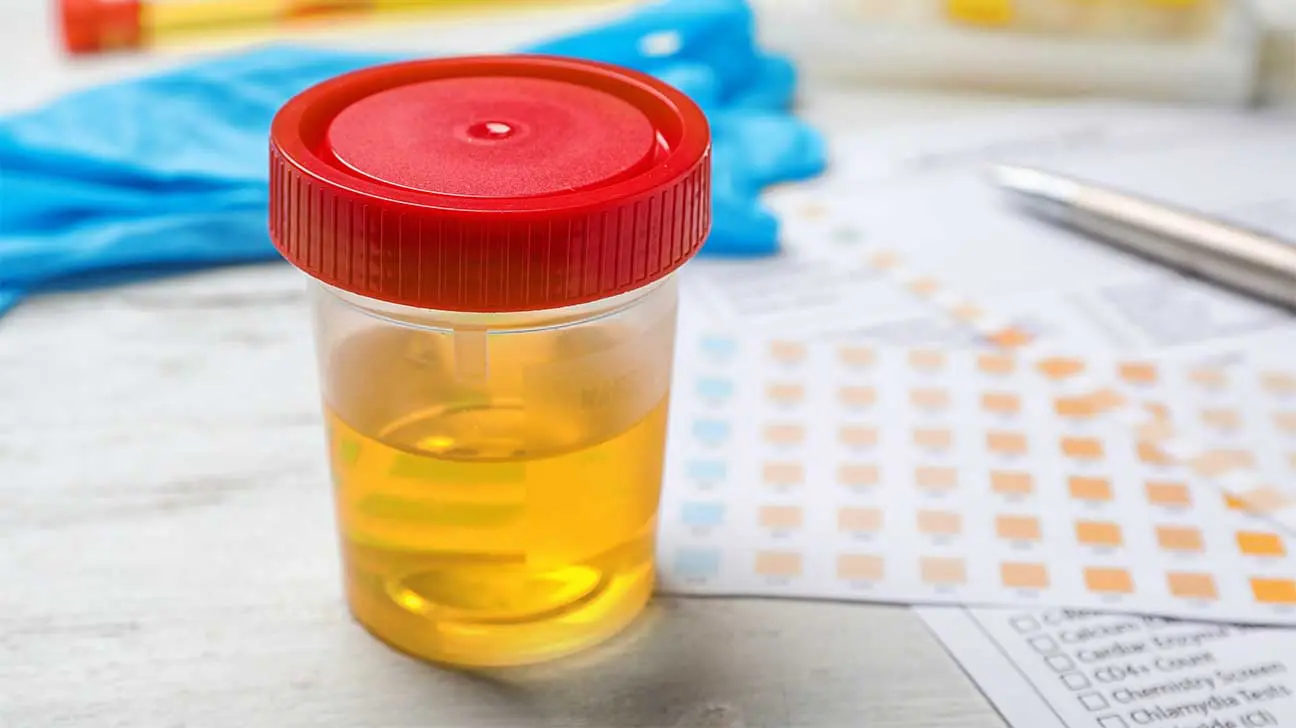
Urine screenings are the preferred method for detecting drug use. Detecting Demerol use in urine will require a specialized screening that is capable of detecting synthetic opioid use.
Demerol is a brand name for meperidine, which is a fully synthetic opioid drug prescribed to treat severe pain and chronic pain.
What Is Demerol?
Demerol (meperidine) is a prescription drug that is chemically similar to pain-relievers such as fentanyl, methadone, and tramadol.
When taken, Demerol binds to opioid receptors located throughout the central nervous system. These receptors play a role in regulating mood, hormones, physical movement, and pain sensation.
Demerol can be habit-forming and addictive with misuse. People can also get a higher tolerance for Demerol over time and become physically dependent on it.
Demerol Detection Time In Urine
On average, Demerol can stay in urine for one to three days. This does not account for factors such as dosage, drug dependence, or the effect of taking multiple drugs.
Factors that can affect the timeframe for detection include:
- age
- frequency of drug use
- amount of drug used
- impaired kidney and liver function
- metabolic rate
- use of other drugs (e.g. benzodiazepines, antidepressants)
Trying to flush your system by drinking a lot of water is not a reliable way to get Demerol out of the system.
What To Know About Urine Drug Tests
Urine screenings are commonly used by doctors, employers, and legal entities to test for illicit or prescription drug use.
Common drugs of abuse include:
- amphetamines
- opioids/opiates (e.g. oxycodone, morphine, codeine, hydrocodone)
- cocaine
- cannabis
- PCP
Medical professionals may order drug testing if you are showing signs of opioid abuse, such as drowsiness, running out of prescriptions early, or unusual changes in heart rate, blood pressure, or breathing.
How To Get Demerol Out Of Urine
Getting a positive test result for opioid use is a common concern among people who misuse or are addicted to drugs like Demerol.
The only way to get a negative result for Demerol is to stop taking it and allow it to leave the body naturally. If you’re physically dependent on Demerol, this can be difficult.
Physical dependence on Demerol can cause withdrawal symptoms if you attempt to stop taking it all at once.
This can be uncomfortable and potentially dangerous, especially if you’ve been abusing Demerol with other drugs.
Demerol Detox And Treatment Options
If you’ve been taking Demerol for a long time, you may need to taper your dosage gradually or seek professional treatment through a detox program.
Medical detox programs can offer:
- medical supervision
- 24-hour support
- medications for withdrawal
If you’ve been abusing Demerol, additional substance abuse treatment may be recommended. Treatment for Demerol abuse may involve therapy, medication, and pain management.
If you or a loved one is abusing Demerol, we may be able to help. Call our helpline today to find a detox program or drug abuse treatment program for opioid addiction near you.
Addiction Resource aims to provide only the most current, accurate information in regards to addiction and addiction treatment, which means we only reference the most credible sources available.
These include peer-reviewed journals, government entities and academic institutions, and leaders in addiction healthcare and advocacy. Learn more about how we safeguard our content by viewing our editorial policy.
- Redwood Toxicology Laboratory—Laboratory Testing Reference Guide
https://supremecourt.nebraska.gov/sites/default/files/Programs/CIP/events/redwood/LAB_Reference_Guide.pdf - U.S. National Library of Medicine: MedlinePlus—Meperidine
https://medlineplus.gov/druginfo/meds/a682117.html - U.S. National Library of Medicine: NCBI—Is Meperidine the Drug That Just Won’t Die?
https://www.ncbi.nlm.nih.gov/pmc/articles/PMC3292527/


